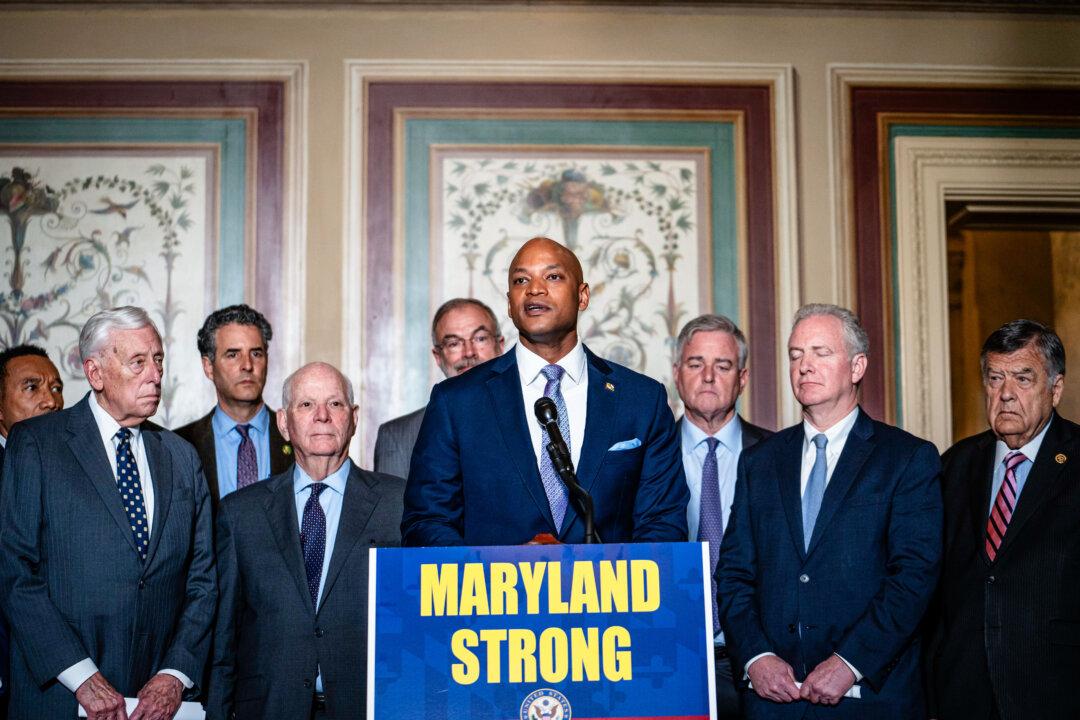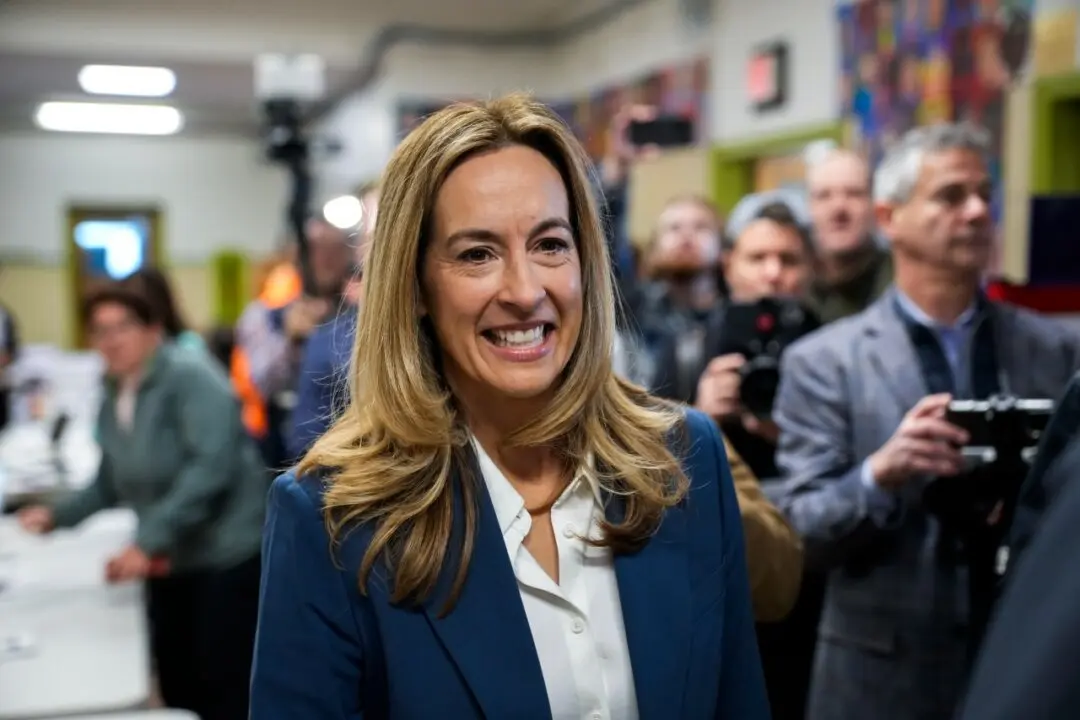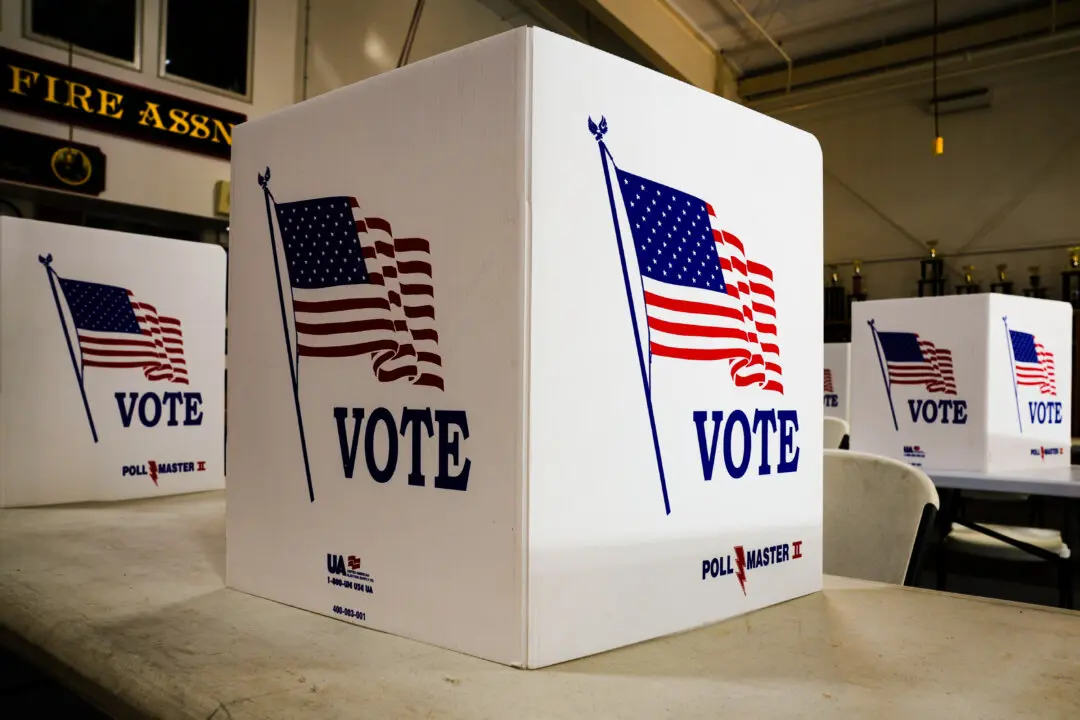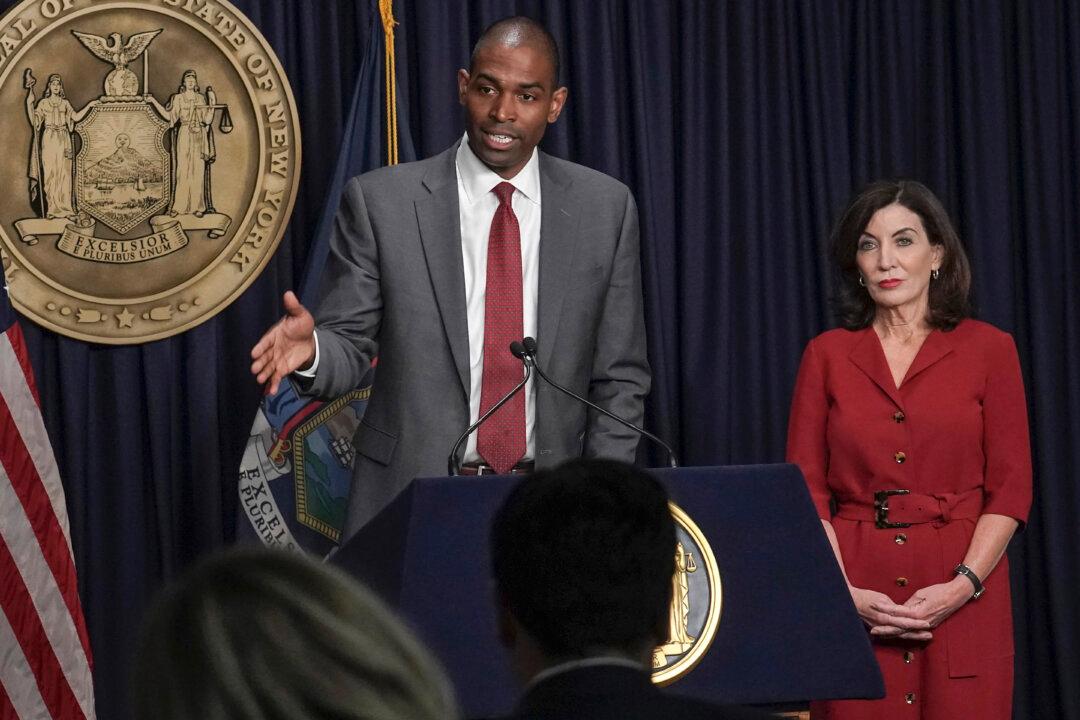Maryland Gov. Wes Moore called on Congress on July 8 to pass a bipartisan bill to fund the reconstruction of the Francis Scott Key Bridge over Baltimore’s harbor after it collapsed when a container ship hit it on March 26.
“This is something that’s ... a priority for this country, for our economic growth and development,” he told The Epoch Times.





